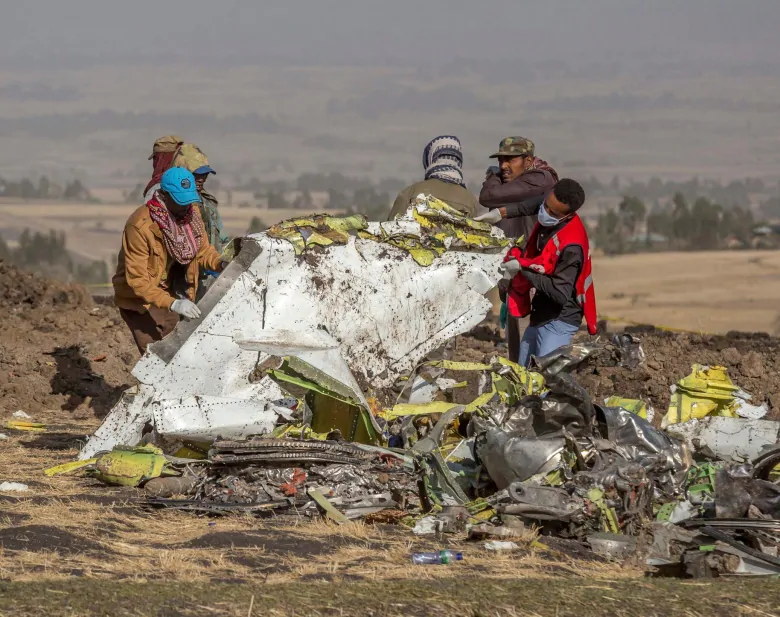On the one-year anniversary of an Ethiopian Airlines crash that killed 157 people — including 18 Canadians — MPs are looking to dig deeper into the federal government’s decision to approve the Boeing 737 Max as safe to fly.

On the one-year anniversary of an Ethiopian Airlines crash that killed 157 people — including 18 Canadians — MPs are looking to dig deeper into the federal government’s decision to approve the Boeing 737 Max as safe to fly.
The House of Commons transport committee is meeting Tuesday — part of a series of public hearings looking into why Canada cleared the Boeing 737 Max to fly three years ago, before two deadly crashes led to the fleet being grounded worldwide.
MPs on the committee now have two new reports to draw upon that point to serious design flaws with the 737 Max, “grossly insufficient” federal oversight in the U.S. and a “culture of concealment” at Boeing.
On March 10, 2019, Ethiopian Airlines Flight 302 crashed southeast of the capital Addis Ababa minutes after takeoff, killing everyone on board, including 18 Canadians and a family of permanent residents to Canada.
The disaster happened just five months after another 737 Max owned by Lion Air plunged into the Java Sea shortly after takeoff, killing all 189 people onboard. Indonesian investigators concluded the crash was due to a combination of aircraft design flaws, inadequate training and maintenance problems.
Ethiopia blames Boeing
On Monday, Ethiopia’s investigation team released its own interim report. It laid no blame on the airline or the pilot, pointing the finger instead at Boeing and saying flaws in the aircraft’s design caused the crash.
The Ethiopian investigators found that, as in the case of the Lion Air crash, the 737 Max’s automated anti-stall system MCAS pushed the jet’s nose down. Their report concludes the system forced the plane’s nose down four times before it crashed into a farm field, leaving a crater about 10 meters deep.
“Most of the wreckage was found buried in the ground,” said the report.

Boeing’s training on the Max was “found to be inadequate,” said the Ethiopian investigators’ report. It recommends training pilots in simulators that can duplicate system failures.
A U.S House of Representatives investigative report released on Friday, meanwhile, paints what it calls a

